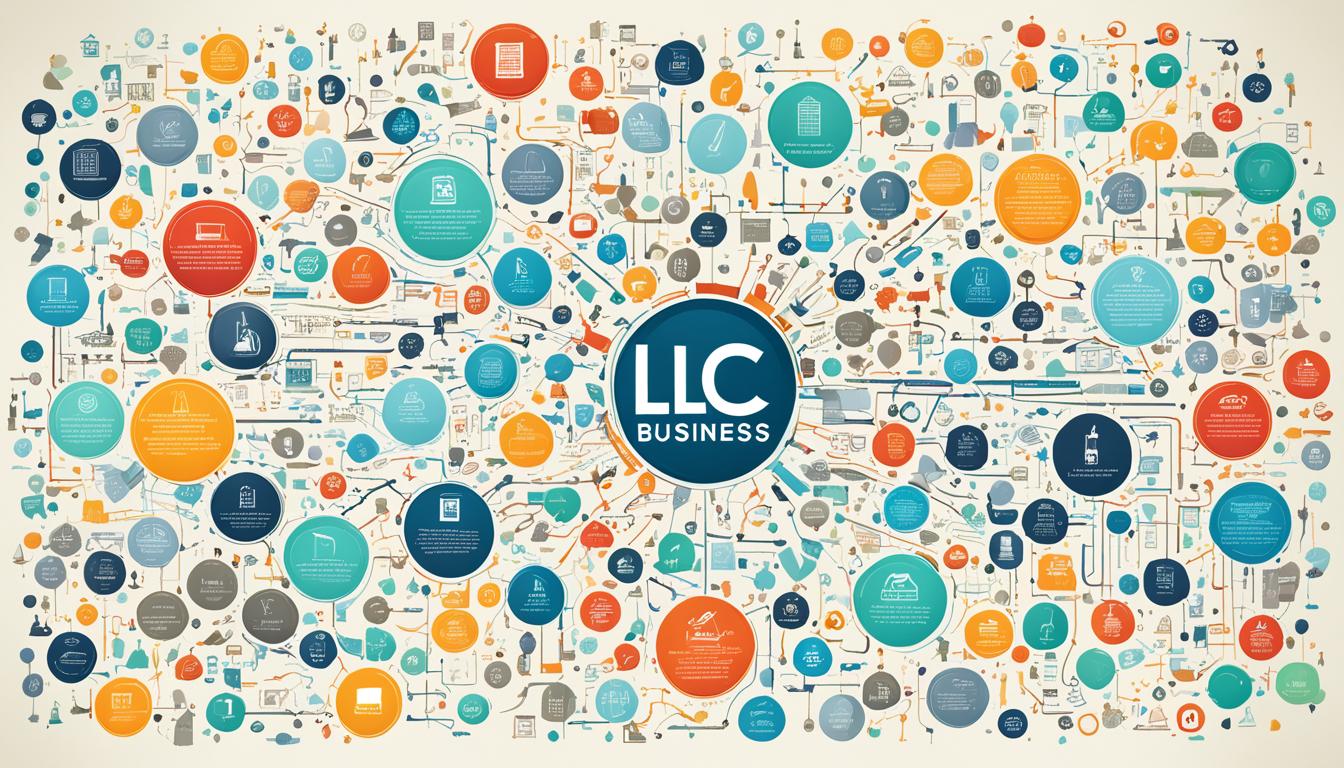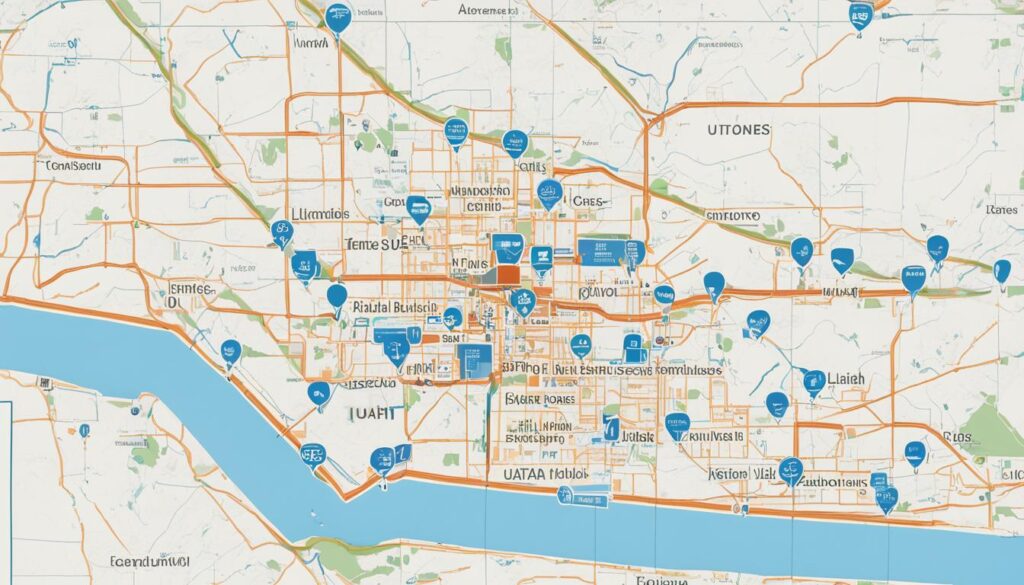Starting a business can feel like you’re lost in a maze of legal stuff. You might be confused about the differences between various business types and rules. Two terms that often confuse people are LLCs and business licenses. Let’s make things clear and see what makes these two important for entrepreneurs.
At first, LLCs and business licenses might seem similar, but they are quite different. An LLC is a legal setup that protects your personal stuff. A business license lets you legally run your business in a certain area. Knowing these differences is important for setting up your business right and following the law.
When you start your business journey, think about both LLCs and business licenses. You might need both to run your business well. Choosing an LLC affects your taxes and liability. Getting a business license makes sure you follow local rules.
Key Takeaways
- LLCs and business licenses serve different purposes in business setup
- An LLC is a legal entity, while a business license is a permit to operate
- Many businesses need both an LLC and a business license
- LLCs offer personal asset protection
- Business licenses ensure compliance with local regulations
- Understanding both is crucial for proper business setup and operation
Understanding Business Licenses: Your Permit to Operate
Business licenses let you run your business legally. They have specific rules that depend on where you are and what you do. Let’s look into why business licenses are key for your business.
Types of Business Licenses
You might need different licenses for your business:
- Federal licenses for certain industries
- State licenses for professional services
- Local licenses for general business

How to Obtain a Business License
Getting a business license takes a few steps:
- Find out what licenses you need
- Fill out the paperwork
- Submit your application
- Pay the fees
- Pass inspections if required
The process changes based on where you are and what you do. It’s important to know the difference between a business license and an LLC.
Importance of Compliance with Local Regulations
Following the rules is crucial for your business’s success. It keeps you out of trouble and in good standing with local officials. Licenses often need to be renewed and may have special requirements. Keeping up with these ensures your business runs well and legally. Understanding the difference between an LLC and a business license helps with compliance.
Exploring LLCs: A Legal Structure for Protection
LLCs are a top choice for protecting your personal assets. They combine the strengths of corporations and partnerships. This makes them a great option for many business owners.
Benefits of Forming an LLC
Forming an LLC means you get personal asset protection. Your home, car, and savings are safe if your business has legal issues. LLCs also offer flexible ownership setups and tax benefits.

Types of LLCs
You have two main LLC types to choose from:
- Single-member LLC: Great for solo entrepreneurs
- Multiple-member LLC: Best for partnerships or bigger teams
Each type has its own perks. Pick the one that suits your business the best.
Steps to Form an LLC
Forming an LLC involves several important steps:
- Choose a unique business name
- Appoint a registered agent
- File articles of organization with your state
- Create an operating agreement
- Get necessary permits and licenses
Following these steps helps set up your LLC correctly. Remember, LLCs have many benefits but need careful planning and ongoing management to keep their protection.
What's the Difference Between an LLC and a Business License
Starting a business means dealing with legal stuff and licenses. An LLC and a business license are two different things you’ll come across. Let’s look at what makes them different.
An LLC stands for Limited Liability Company. It’s a way to set up your business that protects your personal stuff and gives you tax options. You create an LLC at the state level. It helps keep your personal assets safe and might save you on taxes.
A business license lets you legally run your business in a certain place. Local authorities give out these licenses. They make sure you follow the rules of the area.
- Purpose: LLCs are about legal setup and protection. Business licenses let you operate legally.
- Scope: LLCs are known everywhere, but licenses are for specific places.
- Requirement: You don’t have to have an LLC, but you must get the right licenses.
- Focus: LLCs deal with ownership and taxes. Licenses make sure you follow the rules.
Knowing the difference between LLCs and licenses is key to setting up your business right. You might need both an LLC and licenses to run your business legally and protect your stuff. It’s a good idea to talk to a lawyer to understand the rules in your area.
Tax Implications: Business Licenses vs. LLCs
Business structures greatly affect your taxes. Let’s look at how business licenses and LLCs differ in taxes.
Tax Treatment for Business Licenses
Business licenses don’t change your taxes directly. But, they’re key for following tax laws. Your taxes depend on your business type, not the license.
LLC Tax Options and Flexibility
LLCs bring tax benefits and flexibility. You can pick how to be taxed as an LLC owner. Single-member LLCs are often taxed like sole proprietors. Multi-member LLCs can be taxed as partnerships.
You can also choose to be taxed as an S corporation or C corporation if needed. This flexibility lets you adjust your tax treatment to fit your business. Knowing these options helps you make smart choices about your business structure. Proper tax planning is crucial for managing your finances well.
FAQ
What is the main difference between an LLC and a business license?
Do I need both a business license and an LLC for my business?
How do I obtain a business license?
What are the benefits of forming an LLC?
How do LLCs handle taxation?
Author
-

David Nguyen is an expert in business licensing, with extensive knowledge in local and international regulations. His expertise is crucial for businesses seeking guidance on compliance and licensing strategies.
View all posts



